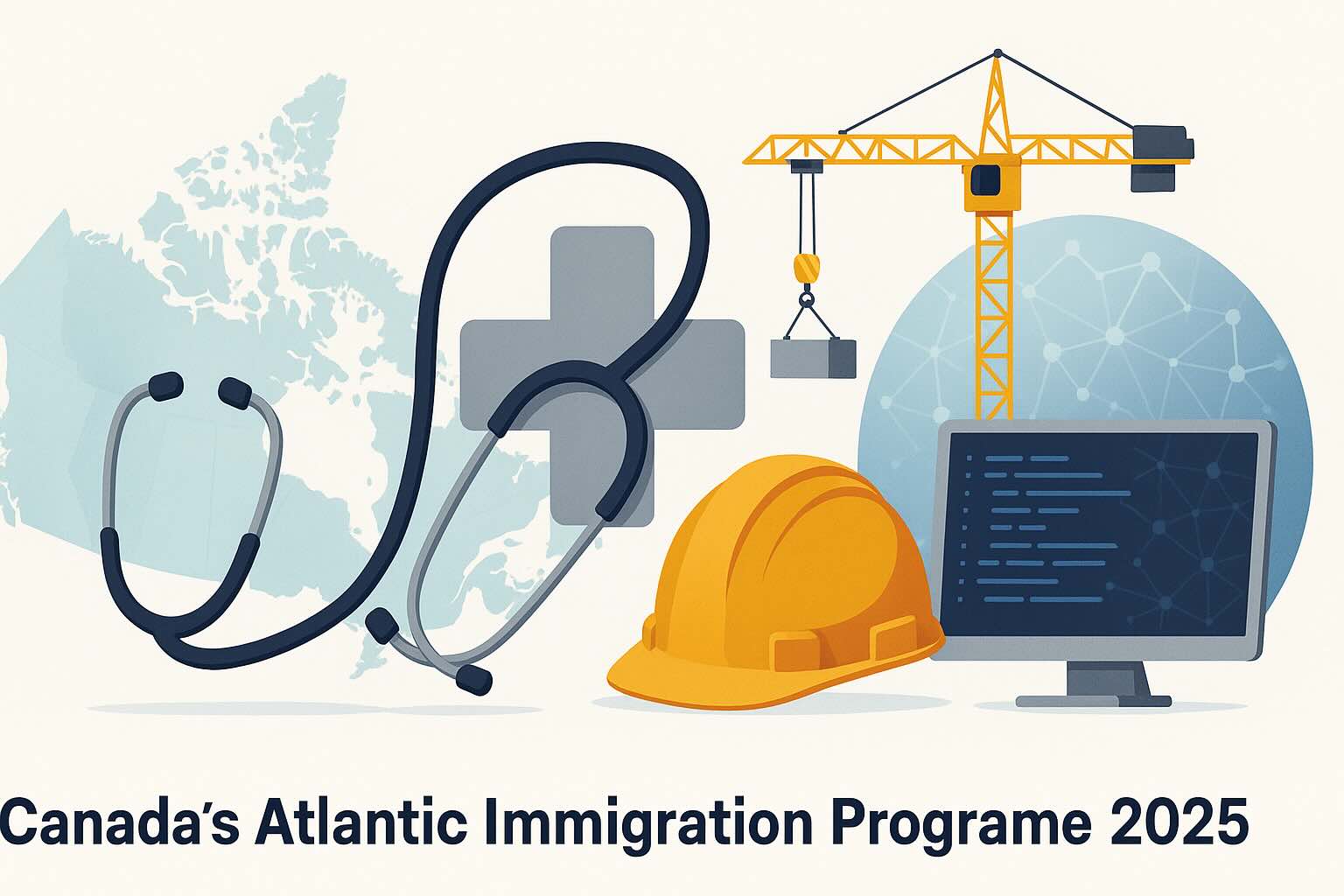
For the year 2025, a significant component of Canada’s immigration landscape—the Atlantic Immigration Program (AIP)—is undergoing a profound strategic realignment. Faced with tighter immigration quotas allocated by the federal government, the four Atlantic provinces have been compelled to adopt more discerning and focused selection strategies, prioritizing applicants who can directly fill critical gaps in their local labor markets.
The core of this adjustment is a shift away from general application intake towards a targeted approach that clearly defines priority sectors and in-demand occupations. For prospective immigrants worldwide, understanding and aligning with these priorities has become a prerequisite for successfully navigating the path to Atlantic Canada in 2025.
About the Atlantic Immigration Program (AIP)
The AIP is an employer-driven federal immigration program designed to provide a pathway to permanent residence (PR) for skilled workers and certain international graduates who wish to work and live in one of Canada’s four Atlantic provinces: Prince Edward Island, Nova Scotia, Newfoundland and Labrador, and New Brunswick. Uniquely, after securing a valid job offer that has been endorsed by the provincial government, eligible candidates can apply directly to the federal government for PR. They are also often eligible for a temporary work permit, allowing for a smooth transition of working while their PR application is being processed.
Provincial Priorities in Focus
1. Prince Edward Island: Targeting Three Pillar Industries
As the first province to respond to the policy changes, Prince Edward Island (PEI) has officially announced that for the remainder of 2025, its AIP will only accept endorsement applications from candidates in three core sectors:
- Healthcare
- Construction
- Manufacturing
This means that applicants working in other industries are temporarily unable to apply through the AIP. However, the provincial government advises these individuals to explore other immigration possibilities by submitting an Expression of Interest (EOI) through the PEI Provincial Nominee Program (PNP).
2. Nova Scotia: A Multi-Layered Priority System
Nova Scotia has implemented a more nuanced, multi-tiered priority strategy:
- Top Priority: Is given to foreign nationals already living and working in the province whose work permits are set to expire in 2025. Among this group, those working in Healthcare and Social Assistance (NAICS 62) and Construction (NAICS 23) will receive the highest processing priority.
- Overseas Applicants: For applicants outside of Canada, applications from those with work experience in healthcare, social assistance, or construction will also be prioritized.
- Special Exemptions: The provincial government has also created exceptions for employers recruiting in key future-focused sectors, including: Trucking, Science and Technology, Clean Energy, and Resource Development.
3. Newfoundland and Labrador: An In-Demand Occupations List
Newfoundland and Labrador has not paused its program but has instead published a detailed "In-Demand Occupations List." Occupations on this list will receive priority processing and are exempt from certain labor market testing requirements.
Key priority occupations are concentrated in three main fields:
- Healthcare: Covering various physicians (Family Medicine, Psychiatry, etc.), Nurse Practitioners (NP/LPN), Personal Care Attendants (PCA), and Clinical Psychologists.
- Information and Communications Technology (ICT): Including engineers, developers, and technical specialists in areas like software development, AI, cybersecurity, cloud computing, and bioinformatics.
- Aquaculture: Specialized roles such as Captain (FM4 certification required), Farming and Feeding Manager, and Cage Site Technician.
A significant procedural change is that as of February 19, 2025, the province has implemented an EOI system for both its AIP and PNP streams. Applicants must first submit an EOI and receive an invitation before they can proceed with a formal AIP endorsement application.
4. New Brunswick: AIP Paused, PNP Becomes the New Gateway
New Brunswick is the only province to announce a full pause of its AIP. Citing that its 2025 allocation has already been met, the province suspended the acceptance of all new AIP endorsement applications as of April 4, effective for the rest of the year. After this date, no new employers will be designated under the AIP, and designated employers cannot submit applications for new employees.
However, the door to immigrating to the province is not closed. As a supplementary measure, New Brunswick received an additional 1,500 nomination spots for its Provincial Nominee Program (NB PNP) in June. Therefore, applicants interested in settling in the province should now shift their focus to the various streams under the NB PNP to find a suitable immigration pathway.
Implications and Advice for Applicants
The latest developments in the 2025 AIP signal the end of a broad-based approach, replaced by a strategy of "precision matching." Applicants must now engage in more targeted planning:
- Verify the Lists: Before applying, carefully study the priority sector and occupation lists published by your target province.
- Target Your Job Search: Focus your job search on provincially designated employers who are operating within these priority sectors.
- Broaden Your Horizons: If the AIP route in your desired province is restricted, proactively research alternative pathways such as its Provincial Nominee Program (PNP).
In summary, while the challenges for applicants have increased, opportunities remain for those who are well-prepared. A deep understanding of each province's economic needs and immigration policy direction will be the key to opening a new chapter of life in Atlantic Canada.









